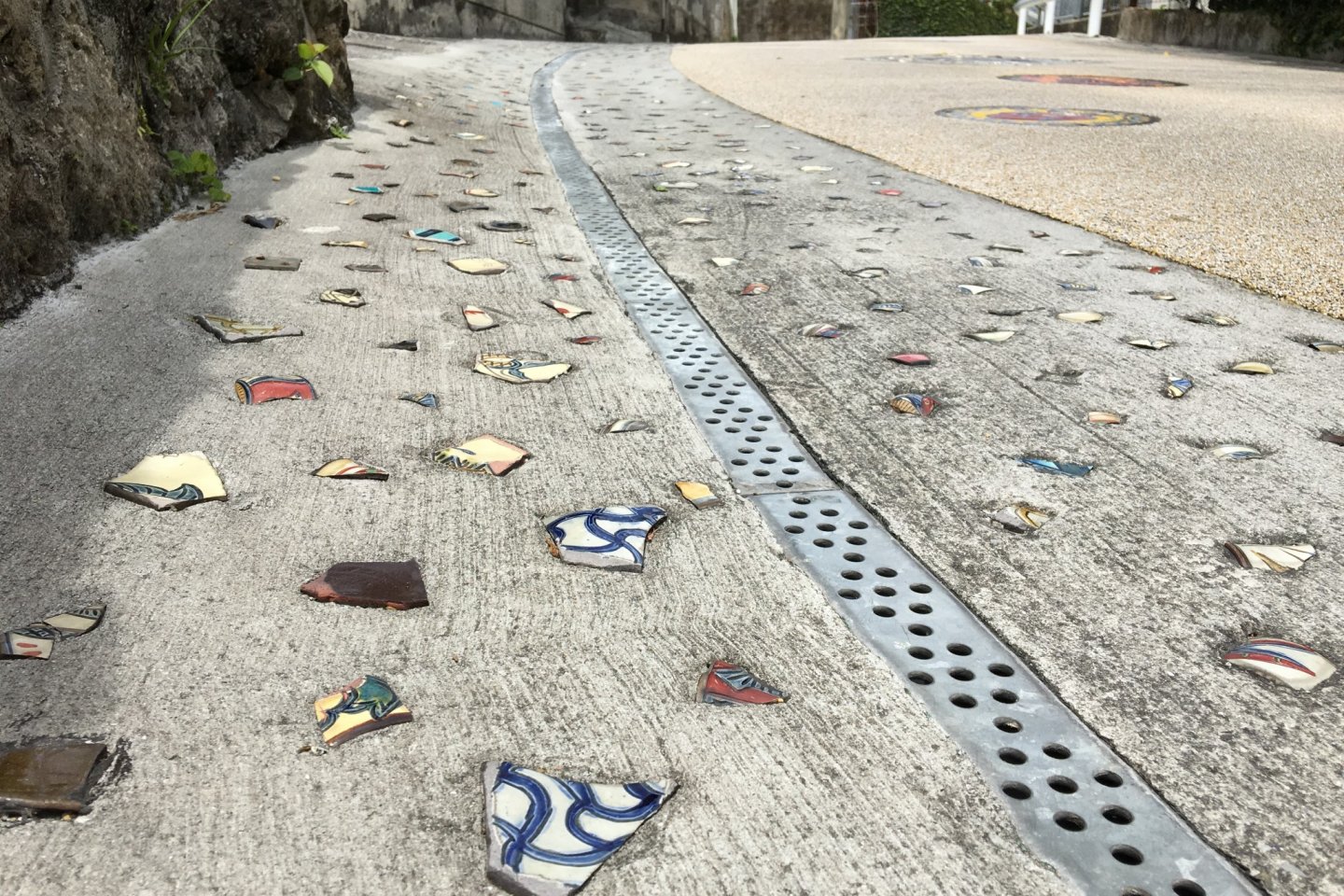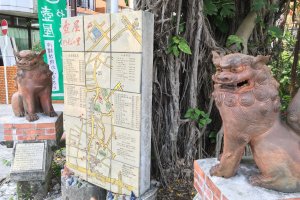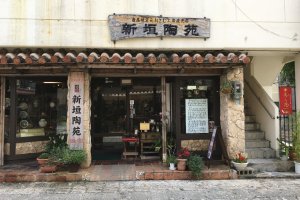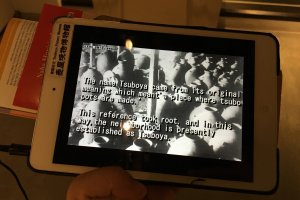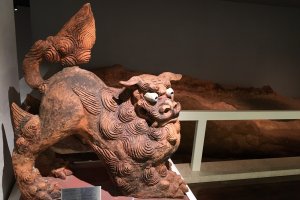Most people in Naha City spend their time in the busy Kokusai street area, but venture to the far end of Heiwadori shopping arcade and you will find yourself at the entrance to Okinawa's pottery district.
Tsuboya Pottery Street, also known as Tsuboya Yachimun Street was designated the center for Okinawan pottery by the Ryukyu kingdom. Today, it is a quiet winding stone paved street lined on both sides with pottery shops galore and popular with tourists who want to bring home a piece of Okinawa's pottery, famous for its quality and aesthetic. The shop windows display everything from earthenware cutlery, bowls and cups to pairs of the famous guardian Shisa lions in all manners of shapes and sizes.
The best place to start your journey is at the Naha Municipal Tsuboya Pottery Museum. It costs just ¥350 to enter and you are given a tablet which gives you comprehensive video and audio tour notes in your chosen language, making for an enriching experience. The museum is two storeys high and filled with various traditional Okinawan pottery artifacts and lots of information about the techniques of Okinawan pottery. Okinawan pottery can be split into two main types: Arayachi (unglazed, usually for storage, including the famous local liquor Awamori) and Joyachi (glazed, usually for cutlery and vases).
Besides learning about the techniques, you end up absorbing quite a bit of local culture and history as well. There are some life-sized dioramas which show you the presence of pottery in olden and everyday Okinawan homes, and you can even see the remains of a preserved kiln for firing pottery in here. I thoroughly enjoyed my experience learning about pottery here.
Armed with this new information, head back to the street and you can now walk into the many shops and appreciate the pottery better. You may be lucky to find some potters at work as the old-fashioned kilns were phased out as they produced too much smoke. So many potters relocated to other areas like Yomitan or switched to electric kilns instead. As you shop, you may even come across a class or two where you can try your hand at making your own pottery!
If you are navigating Naha without a car, take the Yui monorail to Makishi station and walk along Kokusai-dori till you get to Heiwa-dori street, it will take you about 15 minutes.
